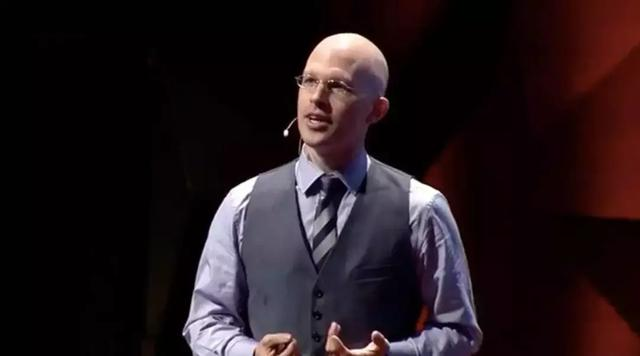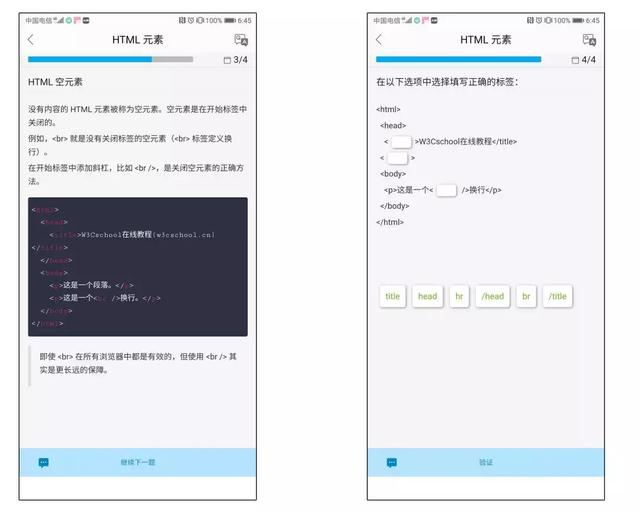This 20-hour way to learn programming, I didn't tell you
Jun 01, 2021 Article blog
Table of contents
The old saying cloud: the speed is not up to. F or programming beginners, the mentality is too edgy, but the easier it is to lose confidence and give up learning. In his book Alien, Gladwell argues that it takes at least 10,000 hours for a person to become an elite in an industry.
But Josh Kaufman thinks it only takes 20 hours for you to master a skill.
It's been a tough 20 hours
Josh Kaufman makes his point this way:
If we can get through the discomfort and frustration of the early stages within the first 20 hours, we can actually easily master a new field of skills.
How long is 20 hours, spend two hours a day studying, and take only ten days to master a new skill, a rule that applies to any skill, and learning programming is no exception.
Seems to do it is not difficult, 20 hours, that is, less than a day, but 20 hours want to learn a certain skill is premised on, continuous high-efficiency learning, this is difficult to do, even after deliberate practice of the master, each time into the learning state, can only maintain 1-1.5 hours of focused and efficient learning state. For ordinary people, this is even more out of reach.
This is not the effect of discomfort and frustration that occurs when you are new to school. 20 hours of efficient study is not an easy task.
Learn to have a sense of ritual
So how do we apply what Josh Kaufman calls the "20-hour law" to learning programming? How can we ensure that our learning process is always the most efficient?
There is a very special faction in the fitness line, they are called the "equipment party". W hat is the Equipment Party? S imply put, it's a group of people who don't want to exercise without fitness equipment. Run a step, no treadmill do not want to run, even if it is to run in the park, but also have headphones, bracelets, running shoes, sweatpants a series of equipment.
Although many people despise the equipment party, think it is too fancy, all day infatuated with those fitness equipment and equipment, but ignored the nature of fitness, in fact, it is not.
When the equipment party put on sweatpants, wear headphone bracelets, there will be a special desire to run impulse, he will think about how to regulate the warm-up exercise, how to make themselves run more scientific, better results. Instead of runners without any equipment, these consciousnesses tend to be weaker than those of the equipment parties.
These sports equipment, is the ritual sense of running, they will give the master a strong psychological cues, the master's concentration, responsiveness, athletic ability to a higher level.
In the newspaper is still very popular era, parents in reading the newspaper, always like to make a cup of coffee or make a cup of tea, some also like to lie on the rocking chair, or raised their legs, leisurely look at the newspaper. Why do you have such a strong sense of ritual when you read a newspaper?
Reading newspapers is for entertainment, and whether it's tea or a rocking chair, it reinforces that goal.
Similarly, learning requires a sense of ritual, and we need to reinforce the purpose of learning to make ourselves more focused on doing this.
So how do you make learning more ritual?
First, an environment conducive to learning must be created.
Philip Zimba, an American psychologist, did an experiment. H e involved 24 volunteers in a two-week prison life, half as prison guards and half as prisoners. O n the first day of the experiment, as usual, everyone thought it was just an experiment. B ut the later, everyone slowly entered the state. The people who played the prison guards began to think that the prisoners were really guilty, began to use violence against them, and the prisoners began to riot.
Amazingly, by the end of the experiment, they had returned to their original identities, and some prison guards and prisoners had become very good friends.
Sun Tzu's Military Law has repeatedly mentioned how to use the environment to achieve victory, Meng mother in order to Mencius can get a good educational environment, at the expense of three relocations. Countless facts tell us how important the environment is to a person's growth.
So, now please put your study place well organized, the table put on a few books, put a notebook and a pen, and finally prepare a cup, so that mobile phones, headphones and other things unrelated to learning, all away from the desk.
Creating a strong learning environment can help you get into learning faster.
Second, playing a set of tai chi, this is not a joke.
Although the vast majority of people experience mental fatigue throughout the learning process, there is also a small amount of physical fatigue due to sedentary relationships. So before you learn, slow exercise can delay the development of physical fatigue.
The famous American psychiatrist Gabrielle proved that people who are in good health and often sit and work are 100 percent psychologically motivated by fatigue.
Long-term study does not produce real fatigue, but because their emotions began to slowly change, began to produce irritability, boredom, anxiety and other negative emotions caused. Therefore, mental fatigue can be self-adjusting, but physical fatigue, but only by time to recover.
That's why W3Cschool recommends stretching your bones before you learn. But there are some taboos, you can play a set of tai chi, you can also do some soothing action, strict down the dragon eighteen palms and move, a large amount of energy consumption, will produce physical fatigue, estimated not just started to learn, have thought of the bedroom lying corpse, how can it be conducive to learning?
Finally, take a two-minute sit-in.
Sit still and close your eyes, and have no distractions, do nothing, don't listen to anything. Take two minutes to feel the passage of time, these two minutes will be so long, so that you can look forward to the beginning of real learning.
By completing the above three steps, the sense of ritual has been established.
What's 20 hours to learn?
There is a picture circulating on the Internet that satirizes those who are delusional and proficient in programming in a short period of time.
21 days can not fully grasp the C, then 20 hours how to do it?
W3Cschool has been advocating and building a healthy and positive learning style against impetuousness and speed. A t this point, someone must be very puzzled: "Your family's micro-class, learn quickly ah, is not fast?" ”
A problem that must be solved has emerged. Fast speed, efficiency will also make learning speed up, how to distinguish between the two?
This question is not difficult to answer, if the learning results are consistent with the goal, then this tool, learning method is efficient, if consistent with the goal, but later you also need to bother to relearn the knowledge already mastered, it is quick.
W3Cschool's micro-classes are about learning efficiently, and of course we're not doing well enough. To this end, we launched the Micro-Class Re-engineering Program in May, introducing real-world micro-classes and doing a lot of optimization work to improve the curriculum and add new courses.
Similar to the example above, a 21-day mastery of C++ is associated with a 20-hour learning to program, with the former pursuing speed and the latter pursuing efficiency.
And the goals of the two are not the same, the former to achieve proficiency, and the latter to reach the entry level.
Josh Kaufman believes that when a person enters a whole new field, the hardest part is the first 20 hours of learning. In this process, he must face the discomfort, as well as frustration, these negative emotions, it is easy to get bored and give up, if we can shorten the process as much as possible, in the process, as much knowledge as possible, for the future study is very beneficial.
Fixed a bug
As we mentioned earlier, mental fatigue is a big killer of efficient learning, we are eager to learn, but after a while will produce fatigue, it is like a programmer wrote a program for several months, expect it to run, but because of a bug, the entire program can not run.
This bug must be fixed.
Japanese writer Murakami has been running for decades, which makes many people wonder, why their running is always three days fishing two days netting, each time adhere to a month on the choice to give up?
This is the difference between a master and an ordinary person.
Murakami has been around for decades, without exception, and every time he runs, he always ends up feeling good about himself, which makes him look forward to the next day's run.
And what about ordinary people running? T oday excited to start running, run to feel very tired before the end, the next day before running on fear, or very tired when it ends, so vicious circle. So, the heart began to produce mental fatigue, every time I think of running, are feeling the pressure, naturally can not last long.
Man is a creature who likes to be comfortable.
Learn programming as it is. W hen we learn a very difficult point of knowledge, want to break the head can not solve, just think, forget, learn it tomorrow. The next day, just started to learn, the difficult problem is in front of us, learned for an hour or two, the difficult problem appeared again, finally still want to, forget, or learn it tomorrow.
Mental fatigue developed, and the brain began to think that learning to program was a tiring thing, gradually trending on the body and not touching it.
Learning to program should make a good impression on the brain. W hen we complete the specified amount of tasks, when we feel good about ourselves, the active end of the day's study will make the brain feel happy. T he next day, the pleasure will follow, and finally end in the same way. At this point, your brain feels that learning programming will make you happy and naturally more willing to stick to it.
Learn 345 efficiently
Learning has a sense of ritual, let the brain full of pleasure, can make learning become efficient. Efficient learning is also inseparable from the following points.
It's not about "using what you learn", it's about "learning for the sake of it." ”
Early Homo sapiens found that fire can make food easy to chew, and will become more delicious, so it was hard to think to save fire, which only later brick and wood fire;
Oppenheimer developed the atomic bomb because of the need for war;
If, conversely, Homo sapiens learned to make fire from bricks and wood, only to discover that it could make food delicious, Oppenheimer developed an atomic bomb, only to discover that it could be used in war, which was unthinkable.
Never take learning itself as a goal, just to allow yourself to do something.
Multiple memories, retelling
The famous Feynman study method holds that if you can tell what you have learned to a little white listener, if he understands it, it proves that you have learned it. Studies have shown that after learning, the brain forgets 70% of its content in a very short period of time, and multiple memories constantly strengthen the brain's memory.
Learn a for loop, try to tell your friends to listen, if he understands, prove that he has learned, if there are no friends around to learn programming, you can also speak to yourself, see if such a description, whether they can understand.
In your spare time, recalling what you have learned can also strengthen your memory.
Find a group of like-minded friends to study with
The theory of social development holds that cooperation is an effective learning method. H e will put invisible competitive pressure on you and urge you to study harder. And when you learn something, you can show off to others and increase your sense of accomplishment.
At the end of the article, W3Cschool sincerely hopes that whether you are learning programming or other knowledge, you can stick to it and pick the fruits of your victory.










